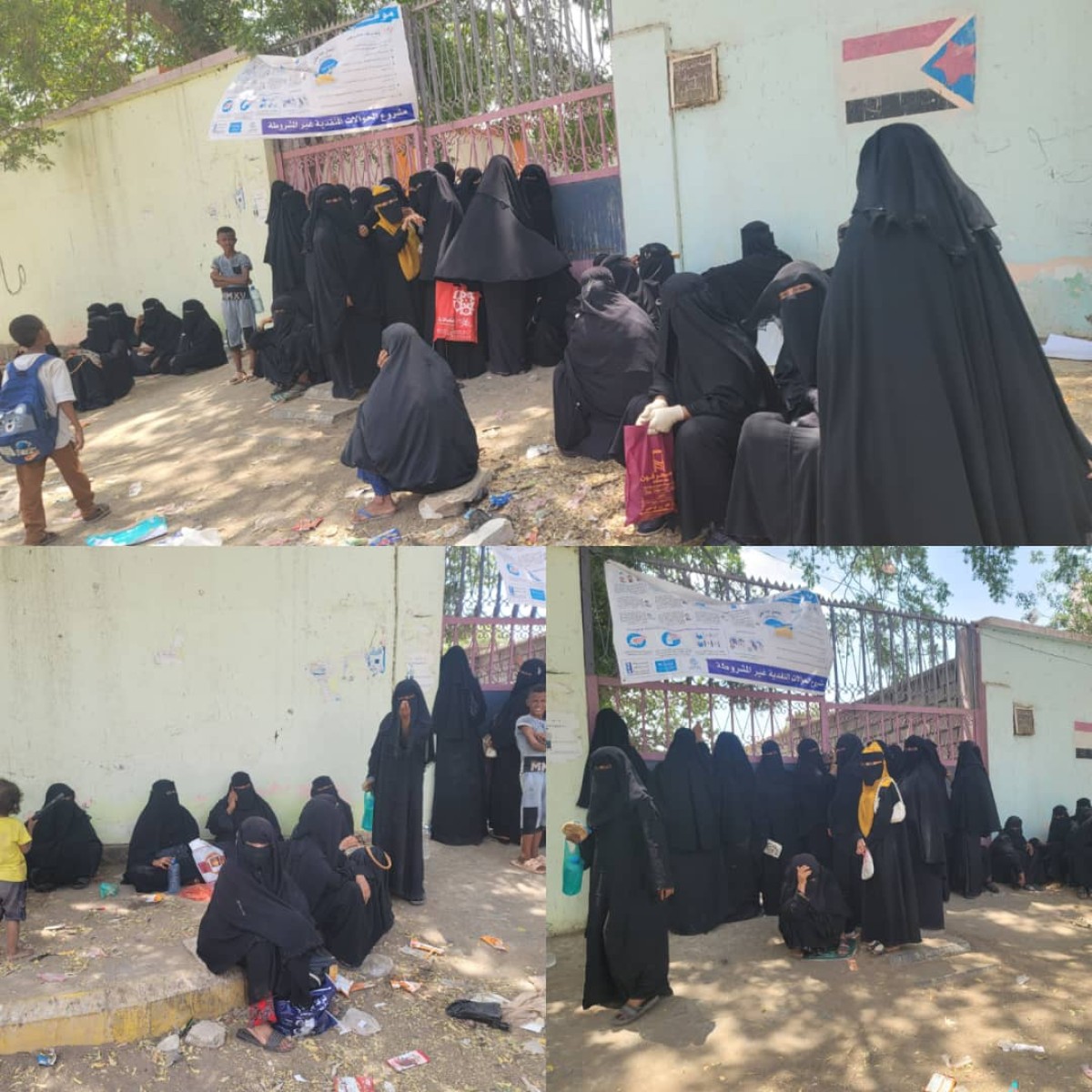From aid to insult... Lahj women's suffering while waiting for cash transfers


In the capital of Lahj, many women, especially the elderly and sick, are experiencing daily suffering due to their long wait to receive unconditional cash transfers, after the “subsidy” that represents a lifeline for them and their families in light of the difficult economic conditions has turned into indignity.
On the sidewalks of the streets for hours and sometimes for days has become commonplace, as they hope to receive the remittances they are impatiently waiting for.
For many of these women, waiting is not only physical suffering, but also a source of constant psychological anxiety. Many of them are sick or old, and do not have the ability to endure for long periods of time in an inappropriate environment. In addition, many areas lack basic services such as seating places, which exacerbates the suffering.
Despite repeated announcements of improvements in the remittance disbursement system, these women still find themselves facing technical and administrative difficulties that lead to delays in disbursement. Because of their complete reliance on these remittances to support their families, many of them find themselves forced to endure this suffering despite its cruelty.
This tragedy continues in the absence of effective solutions to speed up and facilitate the process of disbursing cash transfers, which raises questions about the extent of the ability of the concerned authorities to find more effective and dignified mechanisms that ensure that this vulnerable group obtains their rights without difficulty or delay.
For his part, the general supervisor of the project in Lahj Governorate, Mr. Ali Abdullah Abdul Aleem, stated this to clarify the reality of what is happening. He pointed out that this is not the suffering that some describe, as we have distributed scheduling cards to each beneficiary, setting the date for the disbursement without any hassle. Abdul Aleem also stressed that the project is making every effort to ensure that remittances are delivered as quickly as possible, and that the priority lies in providing support to women and the groups most in need.
At the same time, the director called on the beneficiaries to be patient and understand the situation, noting that the teams are working to facilitate the process and improve the current conditions as much as possible.